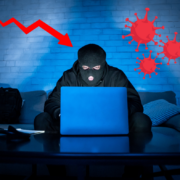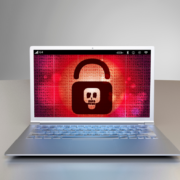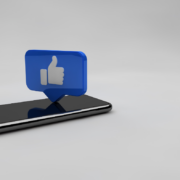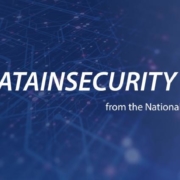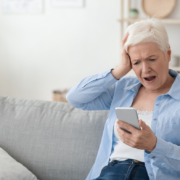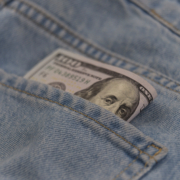Annual Fraud.org report shows link between COVID-19, recession, and scammers preying on Americans
Watchdog group’s annual report tracking trends out today
For immediate release: February 1, 2021
Media contact: National Consumers League – Carol McKay, carolm@nclnet.org, (412) 945-3242 or Taun Sterling, tauns@nclnet.org, (202) 207-2832
Washington, DC—An analysis of the scams most frequently reported by consumers in 2020 tells the story of economic downturn, social isolation, pandemic fears, and opportunistic criminals, according to a new report released today by the National Consumers League’s (NCL) Fraud.org campaign. Through the Fraud.org website, NCL collects complaints from consumers about suspected and confirmed fraud incidents, tracks trends, and shares the data with law enforcement.
The report’s findings note the pandemic’s impact on fraud trends, including increases in “get rich quick” schemes and predatory scams of the heart. The number of complaints received at Fraud.org regarding bogus prizes, sweepstakes, and free gifts nearly doubled year-over-year. Another pandemic scam trend: a notable increase (30 percent) in romance scams, which experts at Fraud.org are linking to the social isolation brought on by the COVID pandemic and Americans turning to online communication for companionship.
“The COVID recession has fueled a rise in get-rich-quick schemes and romance scams,” said John Breyault, NCL Vice President of Public Policy, Telecommunications, and Fraud and the new report’s author. “The pandemic created a perfect storm for criminals: millions out of work and struggling with new financial hardship; people forced to isolate and seek companionship online; and incredible uncertainty about the future. Last year was a good year to be a con artist.”
With many of the conditions from 2020 still in place, the consumer watchdog is cautioning consumers against the most common scams that plagued Americans last year.
“While the exact pitch differs from scam to scam, there are red flags that consumers should consider,” said Breyault. “A request to send money to someone you’ve never met in person is almost always a scam. Another tried-and-true tactice scammers use is to create a false sense of urgency to get victims to send money before they stop and think. The best advice we can give to consumers is to stop, think, and talk to a friend or loved one before you send money.”
In 2020, consumers submitted more than 5,700 complaints to Fraud.org. Forty-three percent of complaints reported a monetary loss, with the median loss of $1,628.
Top Ten Scams of 2020
- Internet: Gen Merchandise
- Phishing/Spoofing
- Fake Check Scams
- Friendship & Sweetheart Swindles
- Prizes/Sweepstakes/Free Gifts
- Advance Fee Loans, Credit Arrangers
- Computers: Equipment/Software
- Internet: Auctions
- Investments: Other (note in comments)
- Internet: Extortion
Other topline findings from the report include:
New fraud entered top ten: extortion scams.
“As the pandemic and the recession continue to grind on in 2021, we are paying special attention to so-called ‘Internet extortion’ scams, which entered the top ten scams for the first time last year,” said Breyault. Such scams fall in to two broad sub-categories. The first category are “sextortion” scams, where consumers receive a message where the scammer threatens to release embarrassing photos, videos, or other personal information to the victims’ friends and family. The second sub-category involves “psychic” services, where the scammer claims to had discovered that a “curse” or other tragic event is about to befall the victim. Only by paying a significant fee can the victim have the “curse” lifted.
Younger consumers and seniors are being targeted more frequently.
The percentage of complaints received from consumers aged 26-65 decreased by an average of 8.76% in 2020. By comparison, complaints from consumers aged 25 and below and those 65 and older increased by an average of 30.60% and 15.82%, respectively versus 2019. For consumers aged 25 and under, the top three most reported fraud categories were Internet merchandise scams, fake check scams, and romance scams. For those 65 and older, the top complaint categories were prize/sweepstakes scams, phishing/spoofing, and Internet merchandise scams.
The Web and the telephone remain scammers’ preferred contact methods.
With email spam filters growing increasingly successful at blocking out scam emails, fraudsters continued to turn to the Web and the telephone to find victims. Those two contact methods were mentioned in more than 81% of the complaints. “This highlights the need for consumers to be wary when responding to messages from unknown senders, particularly those encountered on social media,” said Breyault. “Consumers should also continue to be on guard for unknown callers seeking to offer them prizes or other inducements to send money.”
Read the full 2020 Top Scams report from NCL.
###
About the National Consumers League
The National Consumers League, founded in 1899, is America’s pioneering consumer organization. Our mission is to protect and promote social and economic justice for consumers and workers in the United States and abroad. For more information, visit www.nclnet.org.

